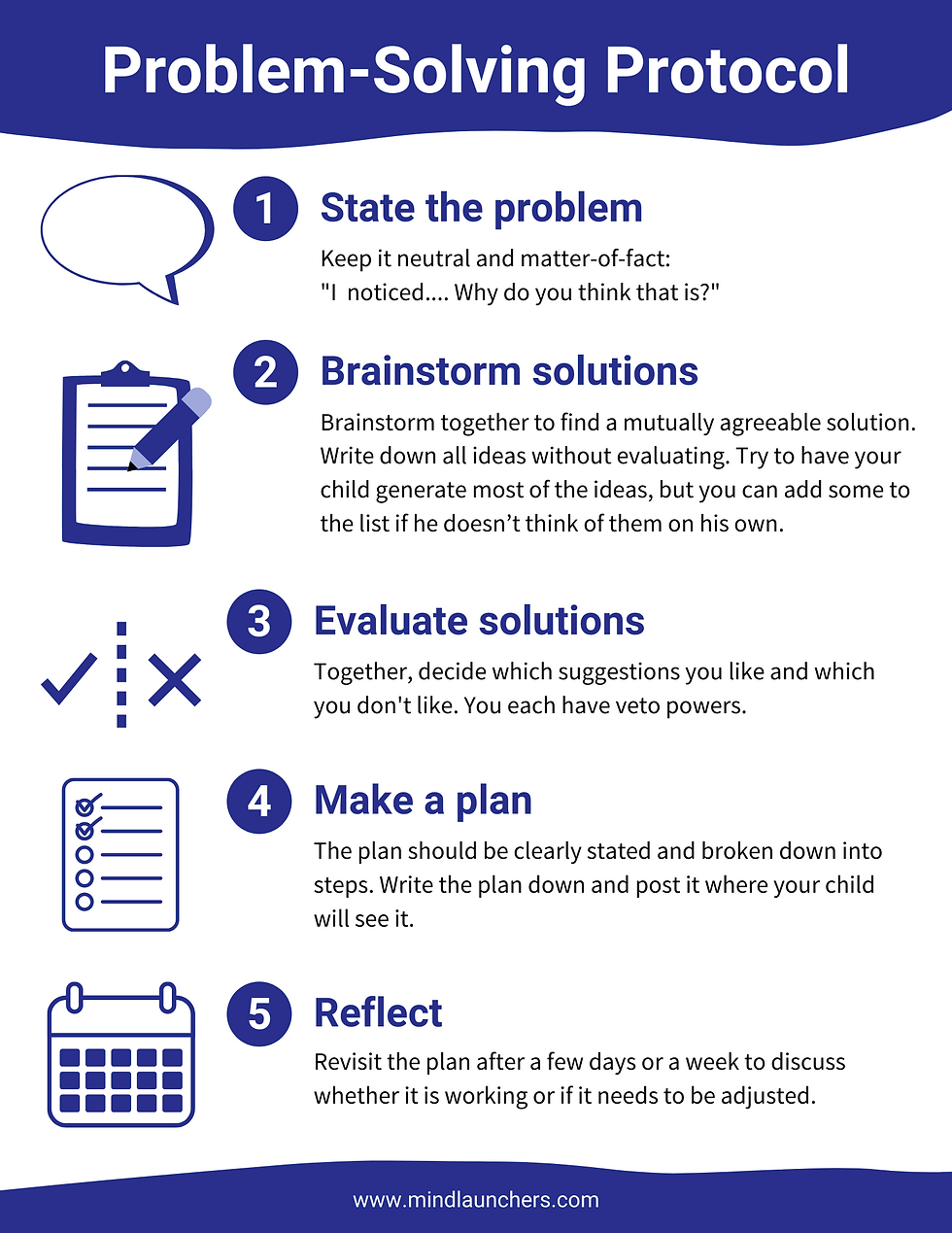Introducing your virtual schooling magic wand...

Wave this magic wand and any virtual school related issues you've been struggling with will vanish into thin air!
We can wish, right? I think many of us would be quick to line up for such a product.
What would be the first thing you would wave your magic wand at?
While I can't give you magic wand (sorry!), I can give you something that is pretty close. It's called the problem-solving protocol. It is a simple protocol that leads you and your child to collaboratively find solutions to issues you observe without any power struggles, yelling, bribes, or threats.
Sounds pretty good, right? Want to see it in action?
Meet Zack, age 10
(*name changed for privacy)
Zack's mom compares him to a yo-yo during Zoom classes. He bounces in and out of his chair and barely ever pays attention. Lately he's becoming more and more resistant to even logging in for a Zoom class and has had several meltdowns when his mom reminds him of his schedule.
It would be easy for Zack's mom to just say Zoom isn't working for Zack. But that's too simple of an answer. We need to figure out what specifically isn't working for Zack. Is he extra fidgety during Zoom classes because he's excited to go play soccer outside after class? Or is he feeling anxious that he'll get called on during class? Or does he bounce out of his chair because he's frustrated that he doesn't understand something and feels like he can't keep up with the class?
Each one of these scenarios would lead to a different strategy implementation. If we don't bother trying to uncover the root causes of the behavior and instead just say, "Sit still and pay attention!" we're very likely to be met with even more resistance.
So how do we figure out the cause of the behavior we're seeing? Luckily that's an easy one: We ask! No one knows better than Zack what's going on in his head.
Now it's true that depending on age and level of introspection, some students may not be able to immediately identify what's really going. But that's just another reason why the problem solving protocol outlined below is so valuable--we are helping our children become more self-aware. As an added bonus, we're strengthening our relationships with our children rather than engaging in an ongoing power struggle.
The Problem-Solving Protocol
State the problem in a neutral, matter-of-fact way. (Mom: Zack, I noticed that you've been bouncing out of your seat a lot during math Zoom class. Why do you think that is?). Then listen without judgment. (Zack: "Class is just so boring and if I sit still I'll fall asleep.")
Brainstorm together to find a mutually agreeable solution. Write down all ideas without judgment or commentary to show your child you are taking his or her ideas seriously. Try to have your child generate most of the ideas, but you can add some to the list if he doesn't think of them on his own. (Zack: "Maybe I could go outside and play with the dog before class to get some energy out.")
Together, decide which suggestions you like and which you don't like. You each have veto powers. (Mom: "I don't like the idea of you just skipping math class altogether.")
Agree on a plan to follow moving forward. The plan should be clearly stated and broken down into steps. Write the plan down and post it where your child will see it. (Example: Zack will wake up at 7 instead of 7:30. He will eat breakfast and then play with the dog outside for 30 minutes before math class).
Revisit the plan after a few days or a week to discuss whether it is working or if it needs to be adjusted.
I believe in this protocol so much that I'm even giving you a free printable to print out and post as a reference. Click the printable below to download and print your PDF.
Pick one area in need of improvement and try out the problem-solving protocol with your child this week. With a little practice, this problem-solving protocol might just become the magic wand you've been looking for.



Comments